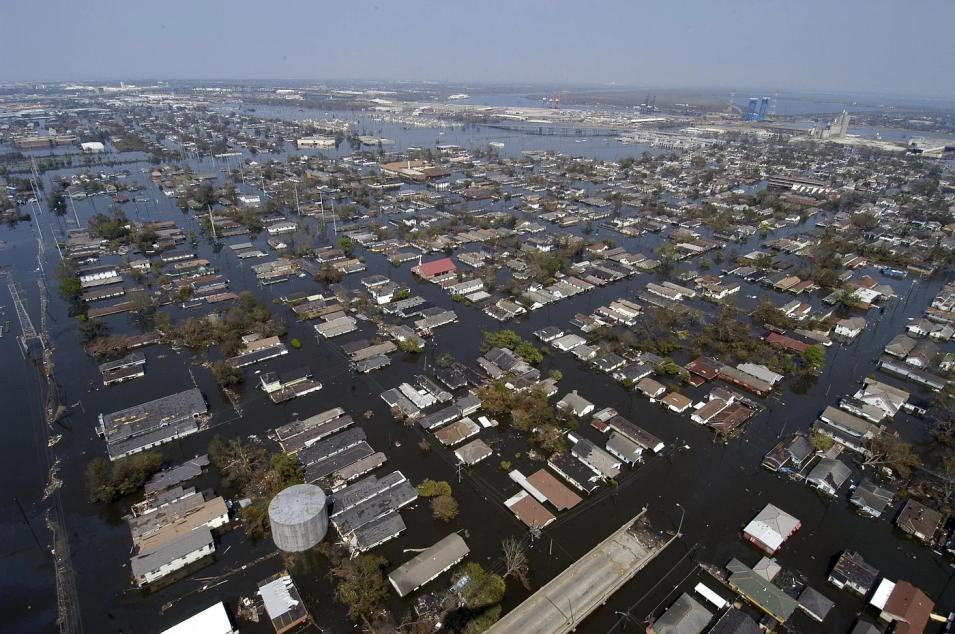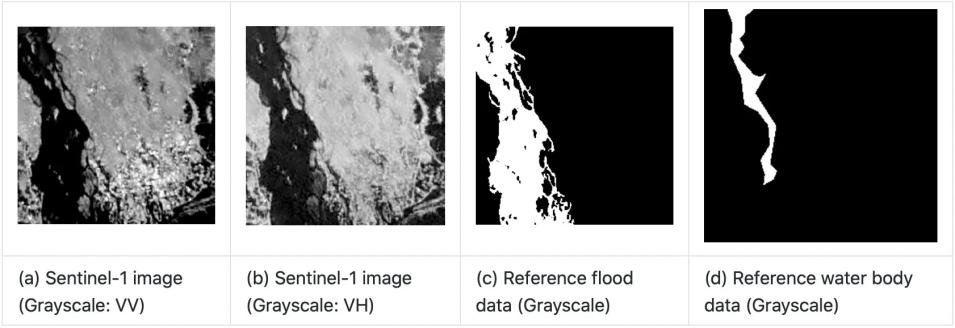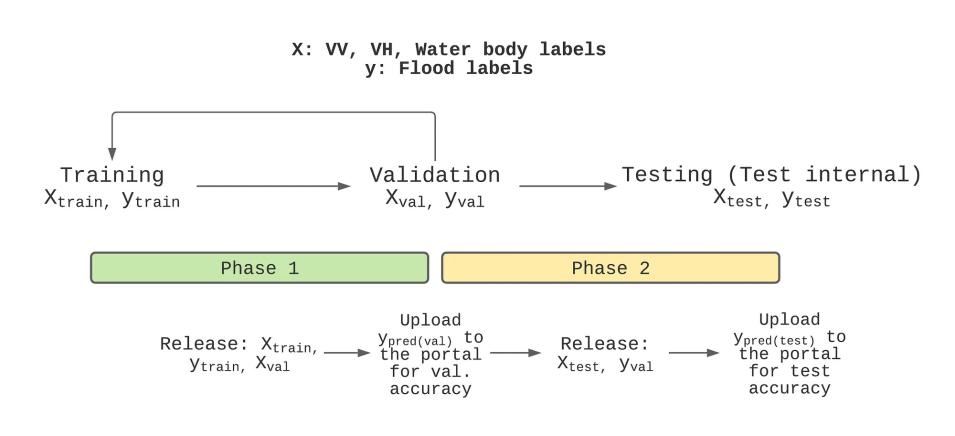Flood events result in devastating consequences for people, ecosystems, and economies. Floods occur throughout the world, and a single major flood event can result in multiple billions of dollars in damages. Flood extent is difficult to acquire on the ground as it is hazardous to operate in a flood zone, and physical access by roads is limited.
Being able to detect flood extent provides automated ways to assist disaster response during flood events. Accurately detecting floods and flood extent via remote means greatly aids in the process of mitigating and responding to these destructive events.


